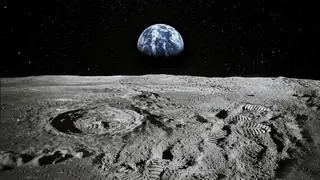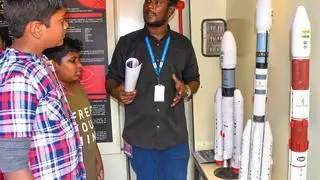Scientists have sent human immune cells to the International Space Station (ISS) to investigate how their structure and metabolism changes in zero gravity.
We know the effect of gravity on muscles, bones and joints inside out; it has been studied extensively in medicine for centuries, researchers said.
For a long time, however, exactly how gravity affects the cells remained a mystery.
The transporter spaceship Dragon lifted off from the Cape Canaveral launch centre in Florida on April 18 with a cargo of immune cells on board.
Thanks to modern cell biology and space technology, we can now study precisely whether and how cells are also adapted to life on Earth, researchers said.
In zero gravity, various immune system functions are impaired: Phagocytes known as macrophages, which kill and destroy invading bacteria, are no longer capable of protecting the person optimally from infections, which is why astronauts often suffer them.
Professor Oliver Ullrich from the University of Zurich’s Institute of Anatomy now wants to investigate how the structure and metabolism of these phagocytes change during a three-day stint in zero gravity.
Samples with immune cells are currently on their way up to the ISS on the so-called Cellbox Mission, where they will be studied in an experiment.
The ISS experiment focuses on the long-term impact of zero gravity on human phagocytes — especially their cytoskeleton and molecules, which are important for cell communication.
On parabolic flights with zero gravity for 22 seconds and in tests on research rockets with five minutes of zero gravity, the team has already discovered that cells from the human immune system respond to the absence of gravity within seconds.
Key molecular functions for cell-to-cell communication and cell migration are immediately impaired, they found.
Based on a three-day experiment, researchers are now looking to investigate whether the vast number of changes that take place in seconds or minutes of zero gravity are actually processes of adaptation to a new environment or far-reaching, permanent problems.
“Conducting research on the ISS is as if — after studying many trees one by one — you climb a mountain to see the whole forest,” said Ullrich.
This ISS experiment is necessary to gain an overview of the processes in the cells.







Comments
Comments have to be in English, and in full sentences. They cannot be abusive or personal. Please abide by our community guidelines for posting your comments.
We have migrated to a new commenting platform. If you are already a registered user of TheHindu Businessline and logged in, you may continue to engage with our articles. If you do not have an account please register and login to post comments. Users can access their older comments by logging into their accounts on Vuukle.